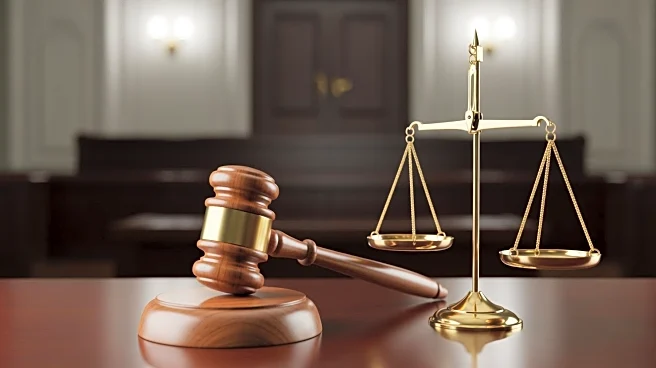What's Happening?
President Donald Trump has granted a pardon to Michael McMahon, a former New York police sergeant who was convicted earlier this year for his involvement in a case linked to China's efforts to intimidate an expatriate into returning to his homeland. McMahon was sentenced
to 18 months in prison for what was described by a federal judge as a 'campaign of transnational repression.' McMahon has maintained his innocence, claiming he was misled into believing he was working for a Chinese construction company rather than the government. A White House official, speaking anonymously, highlighted McMahon's explanation and his commendable service record before his career was cut short by an injury in 2001. McMahon's lawyer, Lawrence Lustberg, expressed that the pardon rectifies a 'horrible injustice,' asserting that McMahon was victimized by the Chinese government.
Why It's Important?
The pardon of Michael McMahon underscores ongoing tensions between the U.S. and China regarding allegations of transnational repression. The case is part of broader U.S. claims against China's 'Operation Fox Hunt,' which American authorities view as a tool for silencing dissidents abroad. This development may impact diplomatic relations, as Beijing insists its efforts are aimed at repatriating fugitives, including corrupt officials, without resorting to threats. The pardon could be seen as a political statement by the Trump administration, emphasizing its stance against foreign interference and its support for individuals caught in international disputes. It also raises questions about the balance between national security and individual rights in cases involving foreign governments.
What's Next?
The pardon may lead to further scrutiny of U.S. policies regarding foreign influence and transnational repression. It could prompt discussions among lawmakers and human rights organizations about the adequacy of current legal frameworks to protect individuals from foreign government actions. Additionally, the case might influence future diplomatic negotiations between the U.S. and China, particularly concerning the treatment of expatriates and dissidents. The response from Beijing remains to be seen, as it may affect ongoing diplomatic dialogues and bilateral relations.
Beyond the Headlines
This case highlights the ethical and legal challenges in addressing transnational repression. It raises concerns about the role of private investigators and the potential for misuse in international contexts. The pardon also reflects broader issues of justice and accountability, questioning how individuals can be protected from being unwittingly involved in international political schemes. It may lead to calls for clearer guidelines and oversight in cases involving foreign governments.
















